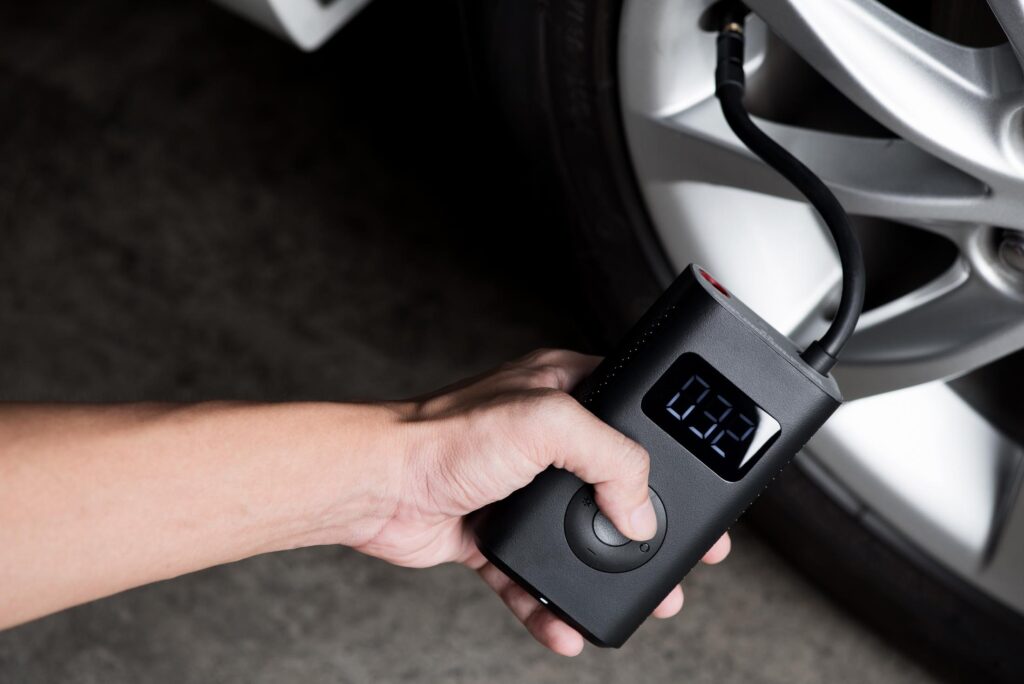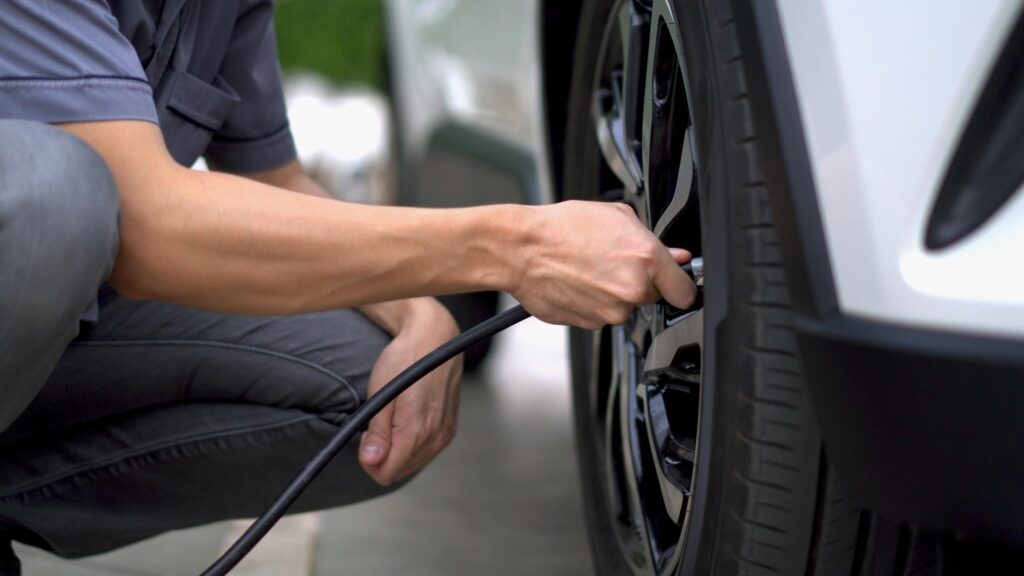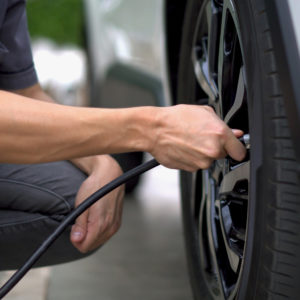The internet has spawned hundreds of buzzwords that have taken certain industries by storm. An example in the automotive world is premium air, a term that’s been used mostly in prank videos.
However, premium air has actually been around for some time now. Professional racers have long been using it to keep race car tires inflated.
What is Premium Air for Tires?
Premium air for tires refers to the process of inflating them with nitrogen instead of regular air. Traditionally, tires are filled with a compressed mixture of nitrogen, oxygen, water, and noble gases.
Advantages of Premium Air for Tires
Using nitrogen over compressed air has its advantages:
Maintains Proper Tire Pressure

According to studies, nitrogen maintains proper tire pressure 40% better than compressed air. This is due to nitrogen’s larger and slower-moving molecules that don’t seep out of the tires as quickly as air does.
Tire pressure is measured using pounds per square inch (psi). Nitrogen-filled tires lose 2.2 psi annually, while ones filled with compressed air lose 3.5 psi in the same timeframe. That’s a 1.3 psi difference per year.
Prolongs the Tire’s Lifespan
Using oxygen often leads to a thermo-oxidative process degrading car tires over time. The use of nitrogen mitigates the process altogether, prolonging the tire’s lifespan.
Less Reactive to Temperature Swings
Nitrogen-filled tires are less reactive to temperature swings, as the inflation pressure remains consistent even as the tires heat up. This is also why racecar drivers opt to use premium air since the speed they drive is bound to increase the temperature in their tires.
Less Moisture
Compressed air has a small amount of water mixed in. This causes changes in pressure and corrodes the steel and aluminum rim over time. It’s less of a concern if you’re using premium air since pure nitrogen has no traces of water.
Less moisture also helps prolong your wheels, as the corrosion process is decelerated.
Saves Fuel
Under-inflated tires worsen the fuel economy of your car due to roll resistance. Nitrogen-filled tires improve the gas mileage of your car since they stay inflated longer.
Disadvantages of Premium Air for Tires
Using premium air for your vehicle tires has its disadvantages over using regular compressed air:

Not Available Everywhere
Not every tire shop or gas station offers premium air. It’s still uncommon to use nitrogen-filled tires for everyday use. However, some shops offer pre-filled nitrogen tires if you’re looking to stock up on spares.
More Expensive
Nitrogen is more expensive than compressed air because it’s unavailable in most dealers or tire shops. However, you could argue it’s more cost-efficient to get because it slows down tire pressure loss and prolongs the lifespan of the tires.
You Can’t Refill With Normal Air
You can’t refill nitrogen-filled tires with normal or compressed air because the mixture mitigates the beneficial properties of nitrogen. This means maintaining your tires gets harder, especially if nitrogen is unavailable in your area.
How Much Is Premium Air for Tires
It typically costs somewhere between $5 and $10 per tire to have it refilled with nitrogen. Meanwhile, the cost of draining compressed air-filled tires and refilling them with nitrogen hovers around $8 to $10 per tire.
How Long Do Nitrogen Tires Last?
Nitrogen tires last an average of three to four months. The length varies, depending on your driving style and other external factors. As such, it’s best to regularly check the tire pressure and follow proper maintenance.
Is Premium Air for Tires Worth It?
As far as value goes, premium air is arguably more cost-efficient than regular compressed air. You’re getting longer-lasting air pressure, healthier tires, and better fuel economy. While the upfront price to get nitrogen-filled tires may be pricey, you’re saving money in the long term.
The biggest downside to getting premium air is the innate difficulty in finding them. But if it’s readily available nearby, then it’s definitely worth getting nitrogen-filled tires.
Additionally, you’ll also need to let others know your tires are inflated with nitrogen. They might accidentally inflate them with air, which disrupts the beneficial properties of nitrogen, to begin with.
You’ll also need to let others know your tires are inflated with nitrogen. They might accidentally inflate them with air, which disrupts the beneficial properties of nitrogen, to begin with.
–Anthony Harlin, ASE Certified Master Automobile Technician
Advantages of Regular Air

There’s nothing wrong with using compressed air, especially if you’re still unsure if nitrogen-filled tires are worth it. Two of the biggest benefits of using regular air is how inexpensive and available it is compared to nitrogen.
Inexpensive
Regular compressed air doesn’t cost as much as pumping nitrogen. In fact, it’s free in most tire shops or gasoline stations.
Similarly, some owners have tire pumps that use compressed air stored in their cars in case of emergencies.
Availability
As mentioned, compressed air is practically available everywhere. From tire shops to gasoline stations, regular air is more accessible than nitrogen.
Can You Mix Regular Air With Nitrogen?
Since premium air is difficult to find, some drivers are left with no choice but to mix regular air in their nitrogen-filled tires. There aren’t any damaging effects when you mix the two, as you’ll still get a properly-inflated tire.
However, mixing air and nitrogen does cancel out the beneficial properties of nitrogen. After you mix them, it’s best to drain out the tire and fill it with nitrogen afterward. This way, you’ll get the benefits of using premium air.
Final Thoughts
Using premium air (nitrogen) for your vehicle tires has long-term advantages over compressed air. Not only do you get to prolong the wheel’s lifespan, but you’re also saving long-term money due to the better fuel economy caused by properly-inflated tires.
Of course, there’s nothing wrong with opting to use regular compressed air. It’s been proven and tested, as drivers have been using it for decades now. Not only that, but it’s available and free almost everywhere you go.
Any information provided on this Website is for informational purposes only and is not intended to replace consultation with a professional mechanic. The accuracy and timeliness of the information may change from the time of publication.
































